Women are not criminals. Safe abortion must be legal. Learn from the UK and Nepal: What happened after decriminalizing abortion? Reflect on the hopes of Thai society: How will it move forward to reduce the mortality rate of women from illegal practitioners, including demands for gender equality?
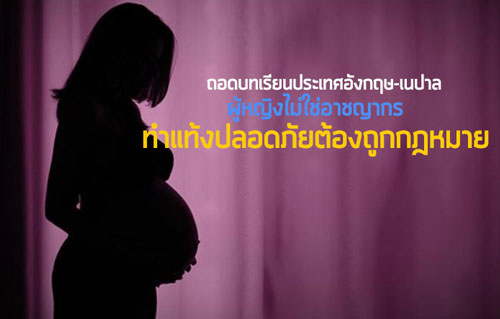
The issue of abortion has been a topic of debate in Thai society for a long time. Every time this issue is raised, there are both supporters and opponents. One of the reasons often cited by opponents is morality, goodness, and correctness, while supporters emphasize equality, including the right to self-care and assistance.
In a recent seminar titled “Women are not criminals. Safe abortion must be legal.”, organized by the Tam Tang Group, Manushya Foundation, British Embassy, Department of Rights and Liberties Protection, and the Network for Women with Unplanned Pregnancies, discussions were held on the direction this issue should take.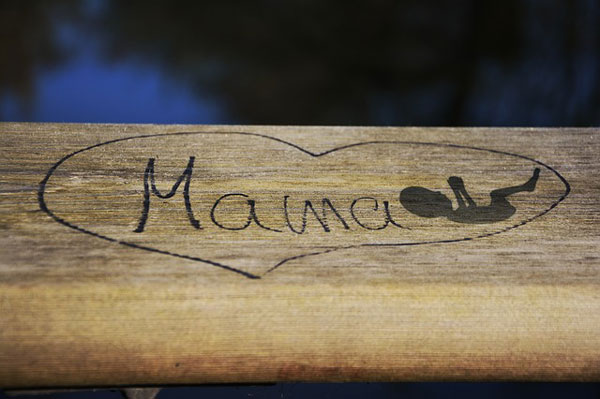
Case Study of Abortion Laws from the UK and Nepal: “In the UK, criminal penalties for abortion have been abolished. The original abortion law was enacted in 1967, requiring two doctors to consider the abortion, and women had to provide evidence that their physical or mental condition was not ready for childbirth. Abortion services are accessible through the National Health Service (NHS),” Kaitlyn Mccoy, a representative of the Tam Tang Group, discussed the UK abortion law case study.
She stated that after decriminalization, the number of deaths from unsafe abortions decreased. However, a significant issue in the UK leading to decriminalization, besides the 30-50 annual deaths from unsafe abortions, was the highest teenage pregnancy rate in Europe, affecting the population and causing pregnant mothers to leave school, unable to continue their education, facing quality of life issues, and relying on state assistance.
When the abortion law was amended, there was no opposition or protest because a 2017 study found that 94% of the population agreed that women could have an abortion if their life was in danger. Another group believed that women who could not be mothers or could not raise children should also be able to have an abortion.
Abortion services in the UK are free and part of the basic health insurance system.
Additionally, there are websites providing information on safe abortions, specifying service locations. Women who are unsure or unable to decide can receive counseling services from providers, including information on risks and details about the abortion process.
Kaitlyn added that besides addressing abortion issues, the UK has also reformed sex education, focusing on comprehensive education, including contraception, pregnancy prevention, and safe sex, accessible online. In areas without internet access, information is disseminated through television, radio, or newspapers.
“Currently, the UK is attempting to amend the law to reduce the burden on women to provide health information that they are physically or mentally unprepared for childbirth. Many provide false information to doctors to access abortion services. The change aims to recognize women’s rights to make decisions about their own bodies,” she said.
In Nepal, where abortion has been legal since 2002, unlike the UK, abortion is a choice for all women without needing to prove that the pregnant woman is physically or mentally unprepared for childbirth. The cost of abortion is 500 Thai baht, and if unaffordable, free services are available at all state hospitals.
Kaitlyn revealed that the factor leading to the amendment of Nepal’s abortion law was the world’s highest maternal mortality rate, with 50% of deaths resulting from illegal abortions. After legalizing abortion, maternal mortality decreased by 50%, from 548 cases per year to just over 200 within the first year of the law change.
After the law amendment, there was no opposition or protest from the public because human rights and women’s rights organizations in Nepal campaigned to raise awareness of the number of women dying from unsafe abortions each year. This approach prevented protests or government attacks on abortion policy changes, as society recognized the importance of preserving women’s lives from abortion-related deaths.
Moreover, Nepal lacks enough hospitals to reach remote areas, so the government certifies clinics with signs indicating that doctors, nurses, or abortion counselors are available. If a clinic displays the certification, it is a safe abortion clinic. However, abortion information is available on only one website, which is difficult for the public to access because 81% of Nepal’s population lives in rural areas with internet access issues. Therefore, communication is done face-to-face or door-to-door.
Incorporating abortion knowledge into sex education aims to provide women in remote areas with knowledge about abortion rights, along with systematic dissemination of abortion information.
“In both the UK and Nepal, when laws allowing abortion are implemented, there is no public opposition because the information presented supports abortion and addresses various issues,” Kaitlyn concluded.
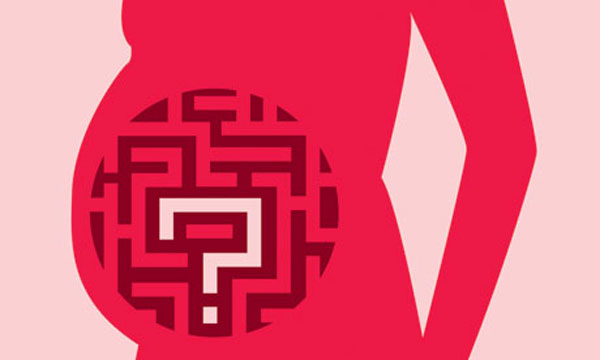
The Struggle of Feminist Groups in Belgium: “Belgium may not be an exemplary country in the process of decriminalizing abortion like the UK, as the struggle was long, causing the decriminalization process in Belgium to occur later than in the UK,” Lot Debruyne, a representative from the Belgian Embassy, discussed the process of amending and changing abortion laws in Belgium.
She further stated that the movement for legal abortion originated from the second wave of feminist movements, with the first wave advocating for voting rights. The process of amending abortion laws in Belgium began around 1970, during which doctors performing illegal abortions were arrested. This arrest sparked both support and opposition in society, leading to significant debate. In 1977, female activists supporting abortion in Belgium were arrested after police found leaflets promoting access to abortion services and explaining how to use abortion clinics in the UK and the Netherlands, as Belgium did not legally allow abortion at that time. This led to cross-border abortion services in the UK and the Netherlands, sparking further societal debate.
In the 1980s, attempts were made to propose laws and amend criminal laws to end criminal penalties for abortion, whether for providers or recipients. However, these laws did not pass the Belgian parliament, making Belgium and Ireland the only two countries in the European Union not to amend laws to allow legal abortion.
Later, in 1990, a law was passed that created significant discord in Belgium. At that time, the parliament decided to pass a law allowing legal abortion, but the Catholic Church and the King of Belgium at that time refused to sign the law. When the parliament decided not to withdraw the law, which required the King’s signature and government approval, the law passed using a parliamentary veto.
“The law states that the decision is solely the woman’s, and the child’s father cannot intervene. It also allows doctors to refuse to perform abortions if they disagree, a provision written to appease the Church. However, doctors must inform the patient of the reason for refusal, and the patient can see another doctor. All medical personnel must strictly maintain patient confidentiality.”
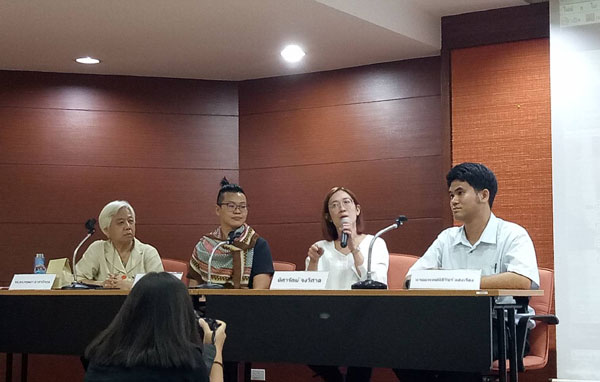
Perspectives from Women Who Have Had Abortions: “The first time I had an abortion, I didn’t want to accept that this situation happened in my life, so I went through it in a blur, not knowing much, letting the man find out what to do. Life went on like a dream,” shared a woman who bravely revealed that she had two abortions.
“People might think that having one abortion should be a learning experience. Why have a second and more? This is why people criticize that it will make people not learn and want to have many abortions. But the feelings of women who have abortions are no different from those who haven’t. I think the term ‘free abortion’ will never happen in this world because women’s feelings are not that free. Women think a lot before deciding to have an abortion,” she shared her feelings.
Meanwhile, another woman who had an abortion and is an activist providing counseling to women from the Tam Tang Group spoke about the criminal code, section 301, stating that what actually happens may not be well thought out, as the law impacts women’s lives in many more dimensions than we think. This section clearly states that any woman who causes herself to have an abortion is criminally liable.
“Suppose a woman tells those around her that she is pregnant. What advice do you think she will hear from those around her? How to tell her parents? Where to register for prenatal care? Where is the man? But there is no question of whether she is ready or wants to receive services because everyone knows that abortion is punishable under some law. When women are not aware of the choices they should have, the consequence is that when they are not ready, they seek options on their own, possibly searching the internet. What they will find is 1) websites selling abortion pills, 2) opinions stating that abortion is a sin and will lead to misfortune, 3) bleeding to death. If this woman does not find reliable information and goes down a risky path, such as using illegal drugs or going to unsafe clinics, she may face significant risks. The least unfortunate outcome is buying pills and nothing happening. If very unfortunate, using the pills results in incomplete abortion and complications. What will she do next? If she goes to a doctor, what kind of look will the doctor give her? Or if she doesn’t go to a doctor, waiting for someone to find her is a life-threatening risk.”
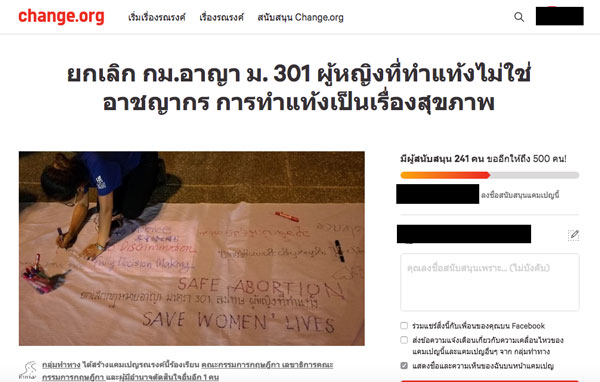
Price as a Barrier: She believes that as a counselor for women, high prices result from non-standard services because there is no clear price standard. Online drug sellers can charge any price, leading to high costs because women have to pay repeatedly due to ineffective services. The danger greater than price is the increasing gestational age. If the service is expensive and does not result in abortion, the gestational age increases, necessitating finding money. The most dangerous thing is selling essential personal belongings to raise money for an abortion.
From the service prices that become a barrier for these women, current state hospital service fees have significantly decreased compared to seeking illegal abortion doctors or buying illegal drugs to self-administer.
Dr. Nithiwat Saengruang, a doctor from the RSA (Referral system for Safe Abortion) network, called on legal professionals to amend the criminal code sections 301 and 302, which prosecute those who have abortions and the doctors who perform them. No criminal law states that if you cut off your own hand or arm or commit suicide, you are imprisoned or fined. But when women have abortions to save their own lives, it is considered a crime. It is seen as a health issue, not a criminal act that undermines the country’s morality.
Another issue Dr. Nithiwat wants to address is that he wants abortion services to be genuine health services without stigmatization from health officials. “I want everyone to think of this as a condition that we need to care for and help with. Don’t let our attitudes judge women; put ourselves in their shoes,” Dr. Nithiwat concluded.
Source: https://www.isranews.org/isranews-scoop/64783-abortion-64783.html
